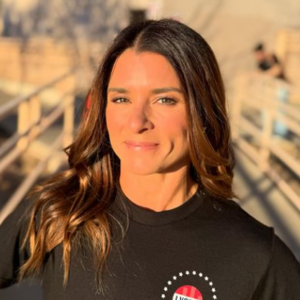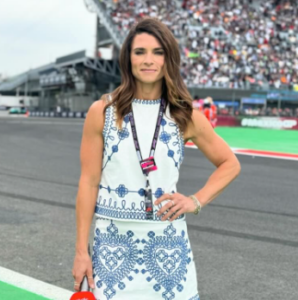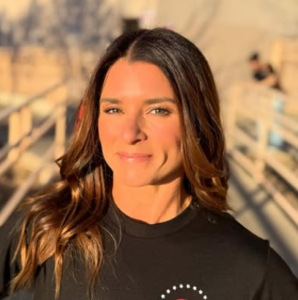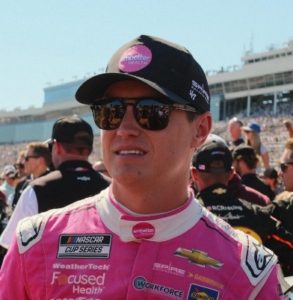Danica Patrick’s post highlights the need for accountability in the face of peer pressure and intense emotional moments, especially during politically divisive times
By calling out “friend manipulation,” Patrick encourages her followers to stay grounded in their own values, think critically about their actions, and avoid succumbing to the influence of others in ways that might lead to regret.
In an era where personal responsibility is often overshadowed by political fervor, Patrick’s message serves as a powerful reminder to navigate relationships and political events with respect, self-control, and accountability.
Also Read: The Danica Patrick Effect: Jenson Button’s Viral Moment, Fan Reactions And More
Table of Contents
Danica Patrick Calls Out “Friend Manipulation” Over 2024 Election Reaction
Danica Patrick, former NASCAR driver and vocal Donald Trump supporter, recently made headlines with her outspoken critique of what she called “friend manipulation” in response to a viral video.1
In this video, two young women are seen reacting intensely after Trump’s victory in the 2024 presidential election, with one friend convincing the other to destroy a TV in anger.
Patrick shared her take on the incident, using it to illustrate what she feels is a toxic pattern of influence among friends.
As an active Republican supporter, Patrick’s comments have sparked a lively discussion on social media about political polarization, personal accountability, and the power of influence among friends.
Nothing says mentally stable like a dramatic new hair do. 🤡 https://t.co/3r4gODZk8A
— Danica Patrick (@DanicaPatrick) November 7, 2024
The Incident That Sparked Patrick’s Response
In the video shared by Patrick, two young women react emotionally to the election results as they realize Trump will serve another term.
One woman, visibly upset, suggests breaking the TV. Initially hesitant, the other woman eventually complies, kicking the screen and damaging it. Patrick shared this clip on her Instagram story, pointing out that while one friend incited the destruction, she didn’t act on it herself—choosing instead to convince her friend to do so.
Patrick labeled this behavior as “friend manipulation,” suggesting it exemplifies a harmful way friends can influence each other to act out in extreme ways.
Defining “Friend Manipulation”: Patrick’s Perspective
For Patrick, the concept of “friend manipulation” involves influencing friends to take actions they might not otherwise consider, particularly in emotionally charged moments.
By encouraging one friend to break the TV rather than doing it herself, Patrick argues, the instigating friend avoided taking responsibility.
Patrick’s perspective on this incident resonated with many of her followers, who feel that social dynamics can often lead people to act out in ways that may not align with their personal values.

Danica Patrick: Strong Political Views
Patrick has been an open supporter of Donald Trump throughout the 2024 election campaign, a stance that has influenced her social media presence.2
She often posts about her political beliefs, sharing content that aligns with Republican values and Trump’s campaign goals.
Patrick even attended Trump’s rallies and delivered speeches advocating for his vision for America, further solidifying her place among conservative public figures.
Public Reactions to Patrick’s Commentary
Patrick’s Instagram post received a range of reactions, reflecting the deeply polarized political climate. Her followers are divided; some praise her for calling out what they see as a toxic social behavior, while others feel she may be oversimplifying the complexities of friendship and influence.
In the politically charged climate of the 2024 election, her words have sparked conversations about the role of peer pressure and the fine line between friendship and manipulation.
Social media amplifies friend influence in modern times, with people often feeling pressured to mirror the views and actions of those around them.
Patrick’s post sheds light on how digital spaces can impact in-person behaviors, especially when emotions run high during political events.
The quick spread of the original video online is evidence of how social media can heighten and broadcast personal, emotionally charged moments to a global audience, sparking reactions from people like Patrick and her followers.

Danica Patrick: Stand Against Violence and Destructive Reactions
Patrick’s decision to share the video aligns with her stance against violent or destructive responses, especially over political disagreements.3
By calling attention to the video, she encouraged her followers to resist responding to political news in a way that causes harm or destruction.
Her message highlights the importance of maintaining civility and emotional control, even during moments of disappointment or anger, and promotes the idea that accountability starts at the individual level.
Emotional Responses to Political Outcomes
Patrick’s comments also raise a broader point about the emotional responses that often accompany political events. In recent years, election results have become highly charged occasions, with some reacting in extreme ways when the outcome does not align with their preferences.
This situation reflects a larger societal trend where political outcomes seem to trigger intense, immediate responses, especially as polarization increases.
For Patrick, the choice to act with restraint during such times is a priority, and she encourages others to channel their emotions into constructive discussions rather than destructive actions.

Using the Incident to Address Peer Pressure
Patrick’s choice to label the behavior as “friend manipulation” speaks to a wider issue of peer pressure.
Peer influence often leads individuals to make choices they might not otherwise consider, as they feel compelled to match the emotions or actions of those around them.
By sharing the video, Patrick aimed to raise awareness about this issue, urging people to think independently and resist pressures to act against their better judgment, particularly in high-stakes situations.
The Role of Influencers in Shaping Political Discourse
As a public figure, Patrick’s opinions carry weight, especially among her followers who look to her as a role model.
Her commentary extends beyond politics to touch on social issues, and she encourages her audience to practice critical thinking, particularly in their relationships.
Patrick’s response exemplifies how public figures, especially those with strong social media followings, can shape discussions on political and social issues, influencing how their followers react to and process major events.

Also Read: Parker Kligerman and Shannon Caught on Girlfriend Cam– Big Machine Racing Fans Go Wild
Also Read: Juan Pablo Montoya’s One-Time NASCAR Return Explained by The 23XI Racing Team Owner and Anniversary






